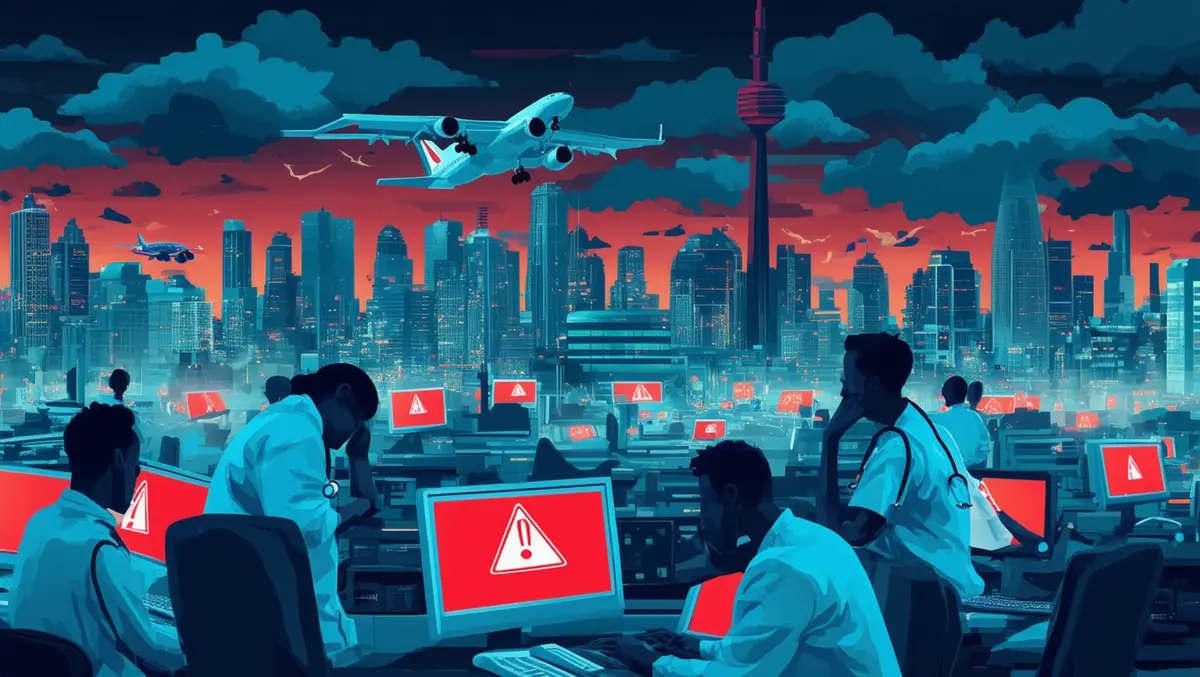
Cyber Security experts respond to global IT outage
Cyber Security experts have responded to a security update related to Windows which saw a significant global IT outage last week.
The failure disrupted operations across critical sectors such as emergency services, financial institutions, airports and hospitals, leading to widespread chaos.
Tenable's Senior Staff Research Engineer, Satnam Narang, stressed the gravity of the situation to TechDay.
"The outage affecting computer systems worldwide is severe," he said. "It is impacting critical systems, such as those in hospitals, airports, financial institutions and more. For instance, patients aren't able to get medications in the hospital setting. It's impacted me personally as I have a loved one who is currently in the hospital setting."
Narang added the issue doesn't stem from the Windows operating system itself but from security software installed on numerous Windows computers globally.
Julian Hayes, a partner at BCL Solicitors, also commented on the outage.
"Weekend plans were shunted aside this morning as Microsoft services were hit by mass outages, causing snowballing global chaos," he said.
"Flights have been grounded across the world, trains cancelled, and sea freight terminals closed."
He said in the UK, doctors and pharmacies were unable to log on to clinical systems, "just weeks after the NHS suffered a cyberattack".
Hayes added that UK water companies, financial services, media, and retail sectors were experiencing related IT issues.
John Atkinson, Director Solutions Engineering, EMEA at Riverbed, emphasised the necessity for proactive IT management.
"When technology works as it should, it's the route to more efficient operations and a great digital experience for employees and customers. When it doesn't, the effects can be painful for all. Today's global IT outage has shown first-hand the consequences - from grounding planes and shaking up stock exchanges to retailers unable to take payments."
Atkinson further recommended that IT teams adopt a comprehensive overview of operations and leverage tools like AIOps to preempt problems and avoid operational disruptions.
Mike Maddison, CEO of NCC Group, stressed the interconnected vulnerability of the digital world.
"Incidents of this nature do occur in a connected world that is reliant on technology," he said.
"Disruption at one stage in a digital supply chain can have a ripple effect all the way throughout it. We've seen this today, with the incident having a tangible impact across the globe, from aviation to banking and healthcare."
Maddison is calling on affected organisations to take immediate remedial action as per CrowdStrike's guidance.
Rob Aspin, Head of Computing and Associate Dean at the University of Central Lancashire, advised consumers to stay calm during situations like these.
"While the widespread IT outages are frustrating, we urge individuals impacted to be patient and follow the guidance of official organisations," he said. "Unplugging your computer or disconnecting from the internet is not a quick fix."
He recommended businesses liaise with security teams to ensure protections are in place.
Xavier Sheikrojan, Senior Risk Intelligence Manager at Signifyd, stressed the repercussions for payment systems:
"In today's fully digitised world, an IT outage has a dire effect on businesses and consumers," he told TechDay.
"Merchants can experience a backlog of transactions, opening themselves up to the risk of fraud and other vulnerabilities."
Sheikrojan advised businesses to have contingency plans that include advanced security protocols.
Guy Golan, CEO and Executive Chairman of Performanta, described the incident as a "major failure".
"A mistake of this magnitude is an epic failure and a huge eye-opener for the cyber world and the business world more broadly. It should not have happened."
He attributed the issue possibly to market pressures and underscored the necessity for better cyber awareness and resilience.


